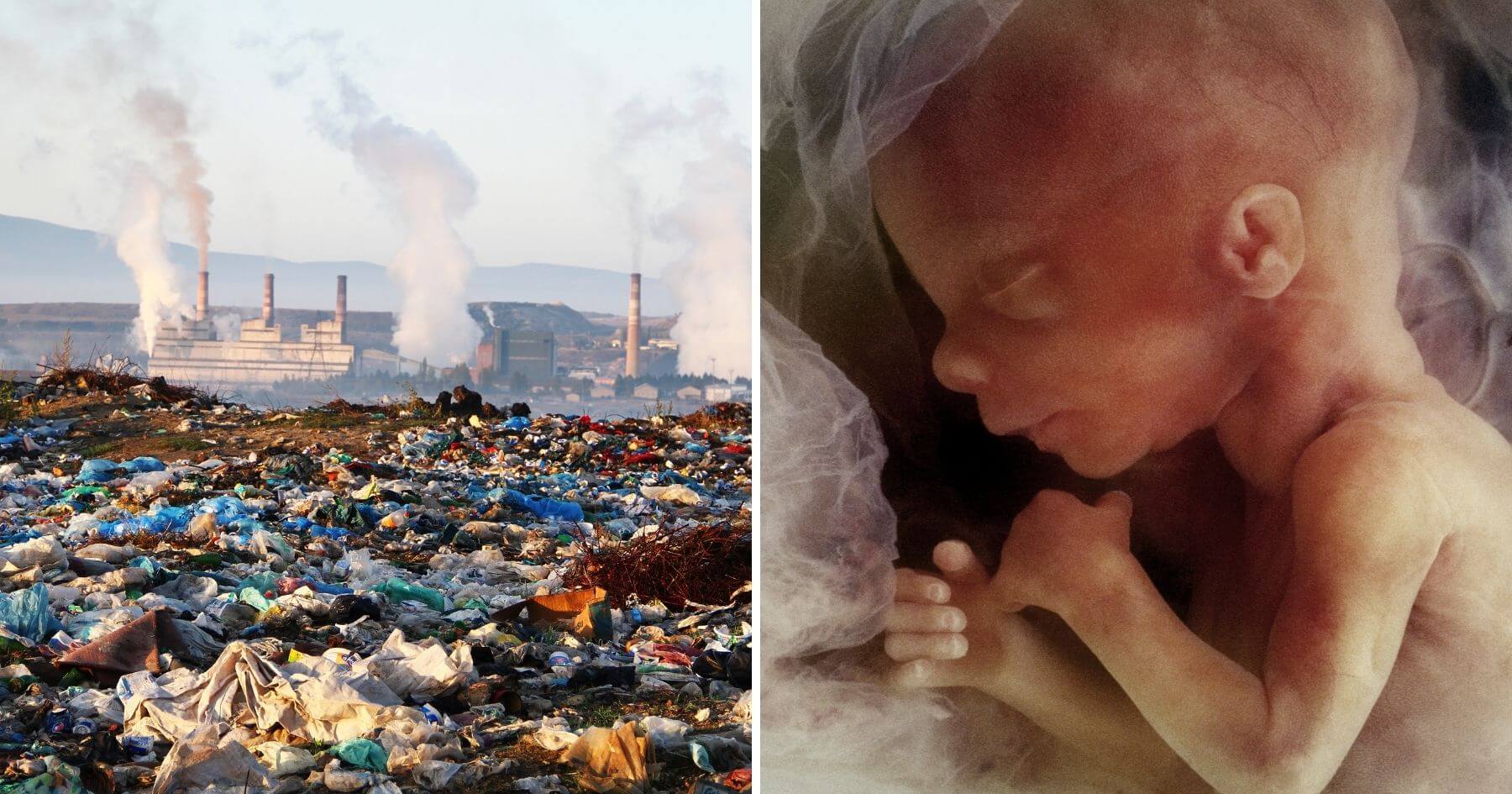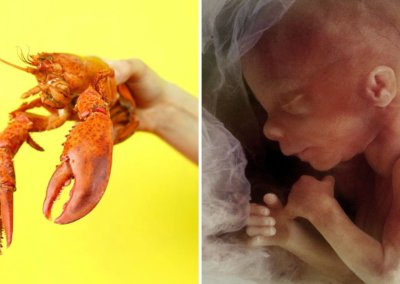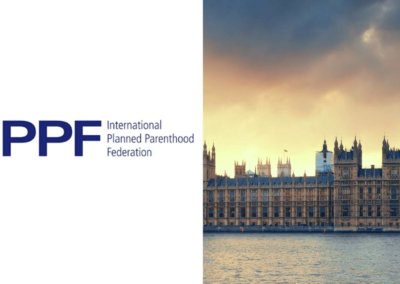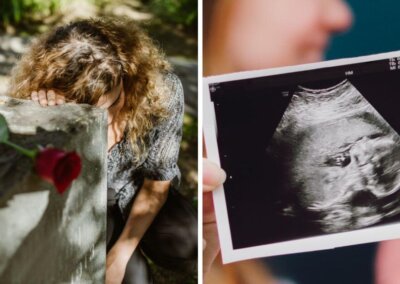In a letter to Alok Sharma, president of the UN Cop26 climate conference, 60 NGOs have urged the UK Government to amend funding eligibility rules to permit projects concerned with reproductive healthcare, including abortion, to access the Government’s £11 billion pot of climate funding.
Bethan Cobley, a director at MSI Reproductive Choices, one of the organisers of the letter and one of the largest abortion providers in the world, said: “Billions are allocated now to climate financing, adaptation and resilience. We’re hearing loud and clear from communities and women and our clients who are most affected by the climate crisis that what they really want is access to reproductive healthcare, so that they can make choices about when or whether they have children”.
A ‘grim’ emphasis on population growth
Commentators have pointed out that the average individual’s carbon footprints are a fraction of that of people in developed countries.
In a piece discussing population panic, George Monbiot states: “The formula for calculating people’s environmental footprint is simple, but widely misunderstood: Impact = Population x Affluence x Technology (I = PAT)… population growth is overwhelmingly concentrated among the world’s poorest people, who have scarcely any A or T to multiply their P. The extra resource use and greenhouse gas emissions caused by a rising human population are a tiny fraction of the impact of consumption growth”.
He goes on to argue: “Panic about population growth enables the people most responsible for the impacts of rising consumption (the affluent) to blame those who are least responsible”.
A 2015 Oxfam media briefing found that the poorest half of the global population (around 3.5 billion people) are responsible for only around 10% of global emissions yet live overwhelmingly in the countries most vulnerable to climate change – while the richest 10% of people in the world are responsible for around 50% of global emissions”.
This excessive emphasis on population growth is by no means a new opinion, and has seen extreme suggestions and incorrect assumptions in the past, with leading figures such as Paul Ehrlich, a patron of Population Matters, having argued that the US should “coerce” India into “sterilising all Indian males with three or more children”, by making food aid conditional on this policy.
Monbiot later writes: “Malthusianism slides easily into racism. Most of the world’s population growth is happening in the poorest countries, where most people are black or brown. The colonial powers justified their atrocities by fomenting a moral panic about “barbaric”, “degenerate” people “outbreeding” the “superior races”… When affluent white people wrongly transfer the blame for their environmental impacts on to the birthrate of much poorer brown and black people, their finger-pointing reinforces these narratives. It is inherently racist”.
A history of racism and eugenics
It was only in November 2020 that Marie Stopes International was renamed “MSI Reproductive Choices” due to Stopes’ well-documented views on eugenics, despite the company claiming that “The name of the organisation has been a topic of discussion for many years”.
In the wake of this change, the organisation was ridiculed due to its new name’s resemblance to the Movimento Sociale Italiano (MSI), the Italian Social Movement. The party was formed in 1946 by supporters of the former Italian dictator, Benito Mussolini. MSI is regarded as a successor of Mussolini’s Republican Fascist Party (PFR).
Marie Stopes publicly advocated for the involuntary sterilisation of several groups she deemed unfit for parenthood, including people with disabilities, addicts, ‘subversives’, criminals, and those of mixed ethnic origin. Stopes even wrote her own son out of her will because he married a woman who had bad eyesight.
In her writings, Stopes called for laws that allowed the forced sterilisation of what she described as the “hopelessly rotten and racially diseased” and wrote fiercely against interracial marriage. She also corresponded with Adolf Hitler, and in August 1939 enclosed a book of her love poems to him.
Profits prioritised over patients
In 2017, a damning report from the UK’s Care Quality Commission (CQC) accused Marie Stopes International (now MSI Reproductive Choices) of paying staff bonuses for persuading women to have abortions.
At all 70 Marie Stopes clinics, inspectors from the Care Quality Commission found evidence of a policy that saw staff utilise a high-pressure sales tactic, calling women who had decided against having an abortion to offer them another appointment.
Another report in 2017 showed that nearly 400 botched abortions were carried out in two months at Marie Stopes clinics. The report also outlined that in another three-month period, 11 women needed emergency transfers to hospital after difficulties at facilities run by the abortion provider.
In 2016, Marie Stopes International was forced to suspend abortion services for a month after an unannounced inspection by the CQC found 2,600 safety flaws at Marie Stopes International abortion clinics in the UK including doctors going home and leaving women under sedation to be supervised by nurses and healthcare assistants, fetuses being put in waste bins rather than cremated and staff trying to give a vulnerable, visibly distressed woman an abortion without her consent.
The inspectors also found that almost half of nurses working at the clinics had not been trained to do resuscitation, safety incidents including medical blunders and equipment failures had increased by a third in a year and doctors were signing off up to 60 consent forms at a time when they were meant to be making a thorough assessment. One doctor filled in up to 26 consent forms in two minutes.
Accusations of neocolonialism
Filmmaker, author, and social activist Obianuju Ekeocha has accused Western nations of ‘neo-colonialism’ due to their efforts to impose abortion on Africa during the COVID-19 pandemic, in a 2020 report from Culture of Life Africa.
In the report entitled “Africa’s Pandemic: A Gateway to Neo-Colonialism”, Ekeocha accused the UN and a number of Western nations, including Canada, the US and the UK, of “humanitarian blackmail” as they seek to capitalise on the global crisis by imposing abortion on the continent.
While many African nations were in desperate need of ventilators at the height of the COVID-19 crisis, the UK Government gave an extra £10 million to the UNFPA (United Nations Population Fund) targeted at developing nations, including a number of African countries, which includes spending on abortion.
The UN has provided additional funding to a number of African nations in the form of ‘Covid Relief Funds’. However, Ekeocha has claimed that this funding is coming “with conditions and clauses that either directly or indirectly open the door to the international abortion organisations, as Western donors are demanding… more access to sexual and reproductive health and rights [abortion]”.
A spokesperson for Right To Life UK, Catherine Robinson, said: “Many commentators have pointed out that, in order to grapple with the issues posed by climate change and environmental degradation, we must direct human genius toward new and innovative technologies – encouraging the abortion of the next generation of humans in developing coutries will damage their prospects for sustainable development, not improve them. Furthermore, 65% of the British public are opposed to their taxes being used to fund overseas abortions, and radical pro-choice NGOs do not have the right to dictate how their taxation ought to be spent. Moreover, given the scandal-ridden record of organisations such as MSI Reproductive Choices, they are certainly in no position to lecture the public about what policies are best for women and for the environment”.












